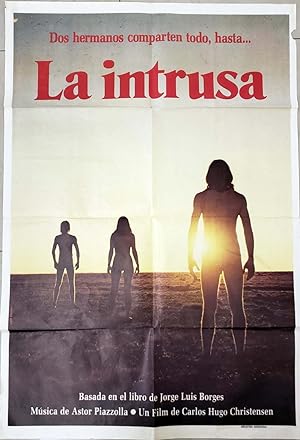Carlos Hugo Christensen Borges Jorge (1 results)
Search filters
Product Type
- All Product Types
- Books (No further results match this refinement)
- Magazines & Periodicals (1)
- Comics (No further results match this refinement)
- Sheet Music (No further results match this refinement)
- Art, Prints & Posters (No further results match this refinement)
- Photographs (No further results match this refinement)
- Maps (No further results match this refinement)
- Manuscripts & Paper Collectibles (No further results match this refinement)
Condition
- All Conditions
- New (No further results match this refinement)
- Used (1)
Binding
- All Bindings
- Hardcover (No further results match this refinement)
- Softcover (No further results match this refinement)
Collectible Attributes
- First Edition (1)
- Signed (No further results match this refinement)
- Dust Jacket (No further results match this refinement)
- Seller-Supplied Images (1)
- Not Print on Demand (1)
Free Shipping
- Free Shipping to United Kingdom (No further results match this refinement)
Seller Rating
-
The Official Poster of the movie La Intrusa
Published by Buenos Aires, 1979
Seller: Chaco 4ever Books, Montevideo, MO, Uruguay
Magazine / Periodical First Edition
Sin Encuadernar. Condition: Muy bien. 1ª Edición. Poster of the film. 1,07 mts x 72,5 cm. Based on Jorge Luis Borges s book. Very good condition. Christensen filmed a lot and varied, both in Argentina and Brazil, but his best films share a peculiar characteristic: they do not resemble anything that others were doing in that same place and time. The same goes for La intrusa, which does not recognize affiliations in its way of representing a minimal incident that Borges's prose hardly suggests. His audacity led to a total ban in Argentina, which lasted until the return of democracy at the end of 1983. The controversy over the greater or lesser fidelity of adaptation, at this point, does not matter to anyone. What remains is the style that Christensen invented for this film, a way of thinking about time and landscape and the weight of both on the protagonists. The dialogues are few and brief: Christensen does speak, instead, to light, wind and bodies, in two of the most expressive sex scenes of all Latin American cinema. The intrusion of the title barely manifests itself in all the footage, but Christensen is more generous with it than Borges himself, and invents a masterful scene, near the end and with an insect, which is emotional and ominous at the same time. W32.


